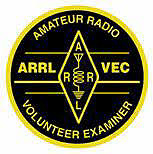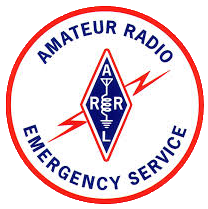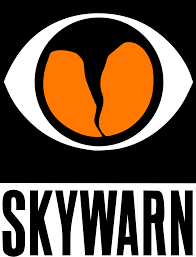ARES has a variety of levels for volunteers to operate at, however, without training beyond amateur radio licensing an operator is unlikely to be utilized. For instance, even the National Weather Service desires storm spotters participate in their classes, and requires completion of them to utilize some of their reporting systems.
Likewise, Tanner Hospital (and others around the country) requires certain training be completed before operators can participate as part of their hospital EMCOMM system. You can be sure that without, at least a couple FEMA courses, no served agency is likely to utilize you.
Because of that, and because most of the training is fairly simple (much simpler than the Technician license test), we are going to do what we can to encourage you in picking up some of the certifications.
FEMA
The Federal Emergency Management Agency provides a wide range of online self-study courses that a variety of served agencies require. I've talked about this in the past and we'll talk again in the future about these courses and where to find them.
Skywarn
This is probably the simplest to go through, but is usually only offered every couple of years in Carroll County. We can, however, assist you in locating classes in surrounding counties. Skywarn is essentially an evening presentation presented by the National Weather Service. At the end you are "certified" as a Storm Spotter.
Hospital
As I mentioned earlier, we have an arrangement with Tanner Medical Center in Carrollton, and they require volunteers take IS-100, IS-200, IS-700, and IS-800 as well as pass a background check. In addition, there is an annual orientation & TB test and flu shot.
County EMA
While we currently have no formal arrangement with the county, almost universally, counties require at least IS-100 and IS-200 or IS-700 to be deployed by the county. In many cases they require IS-100, IS-200, IS-700, and IS-800.
The reason for this training is obvious, it's important that those involved in emergency operations have demonstrated competency before an actual deployment. Likewise, we need to do the same thing. As a result, we're going to create some levels of certification in order to better prepare for deployment.
Licensed operators with no additional training may join ARES, but the reality is they will likely not be used in an actual deployment. It is hoped, in the future, we'll be involved in public service events like bike and foot races at check-points, and these volunteers will certainly be needed and utilized for these non-emergency events.
In order to be a "Certified Net Control Station" for an actual activation (such as Skywarn or activation by the EMA) we are asking volunteers to take the Skywarn as well as the FEMA IS-100 and IS-200 courses and have served as a Net Control station at least twice during a year (either ARES or a club net).
We're also asking all who are interested in storm spotting take an online course or, preferably, sit in on one of the National Weather Service's SKYWARN classes.
In order to build a database of those who wish to be involved in ARES, and build a database of what equipment, operating capabilities, and certifications an operator has, I have built a form at WX4BK.com to fill out. Just go there and click "Join ARES" on the left menu. Don't be intimidated by the number of unchecked boxed you might have, because we all have different interests and the form has to ask about all of them, we'll all have areas we have little or no experience.




